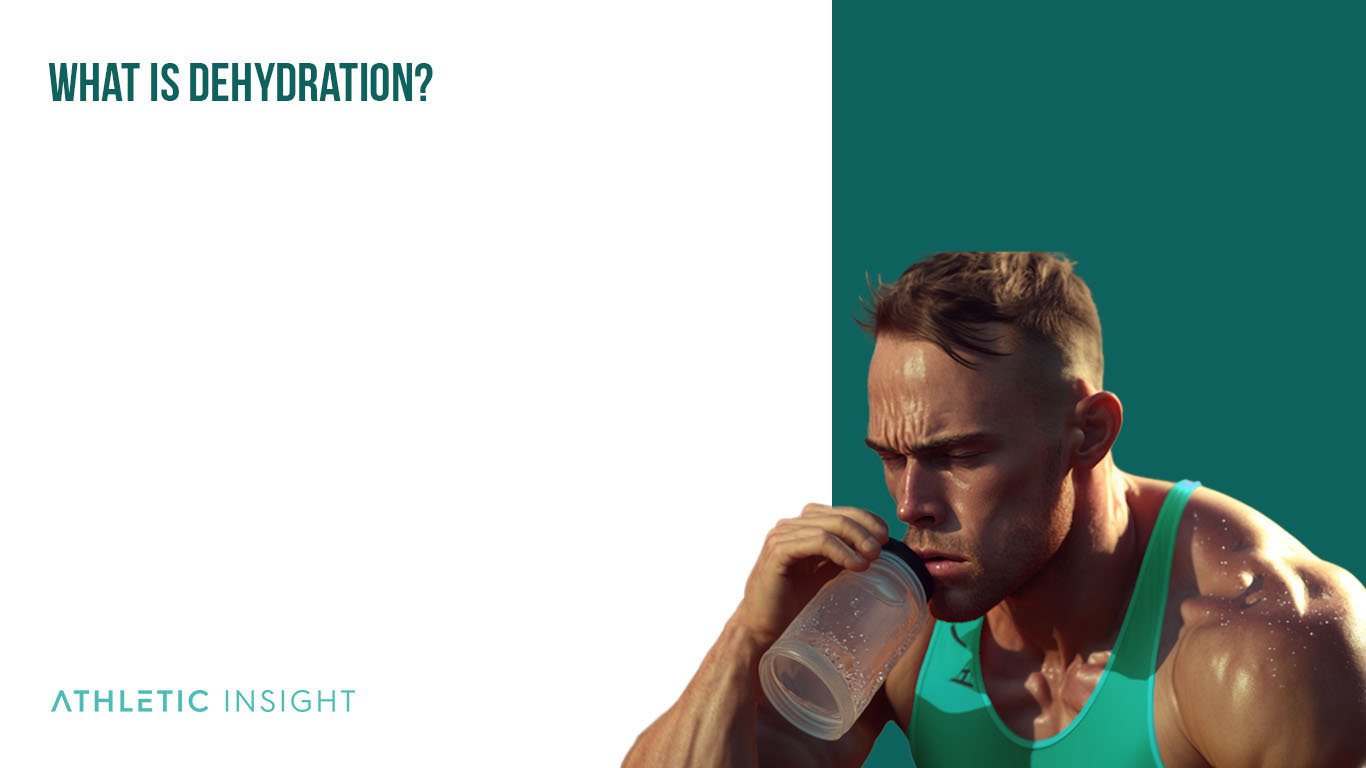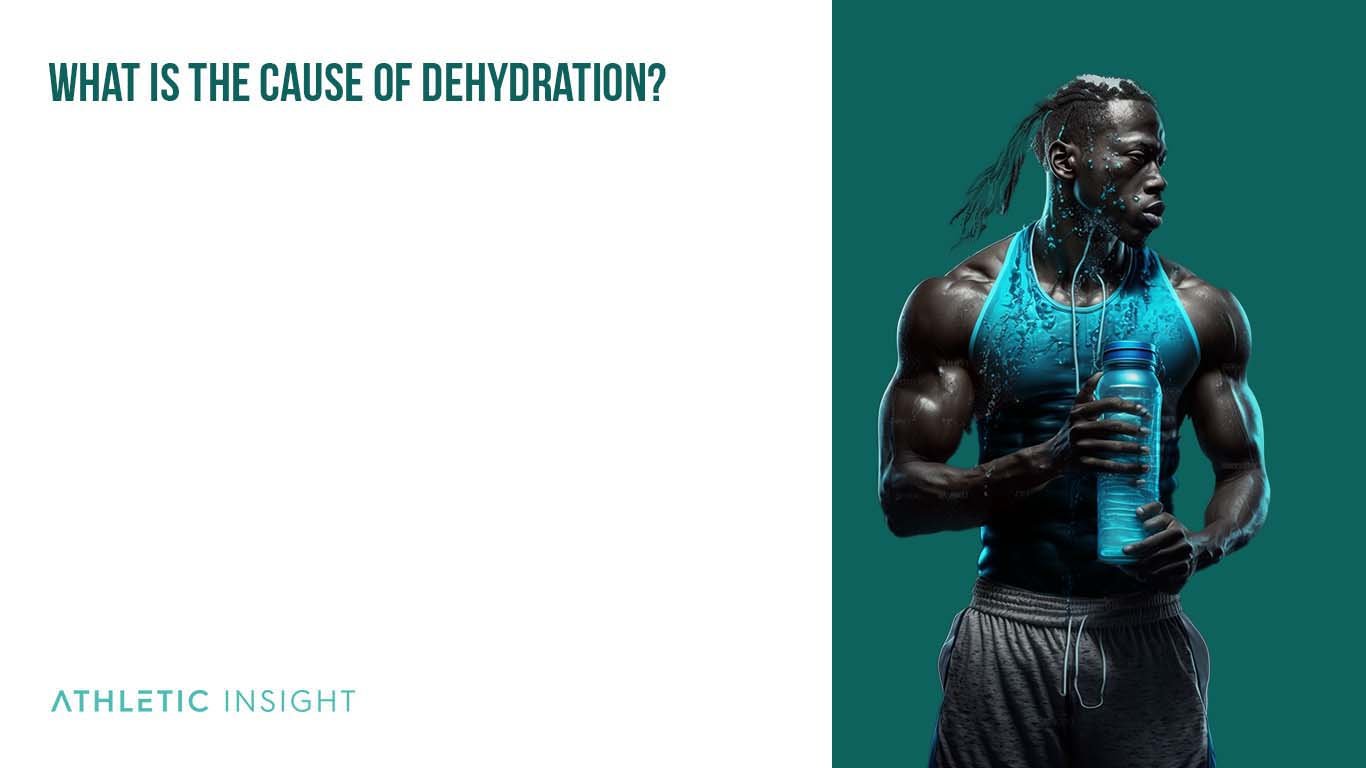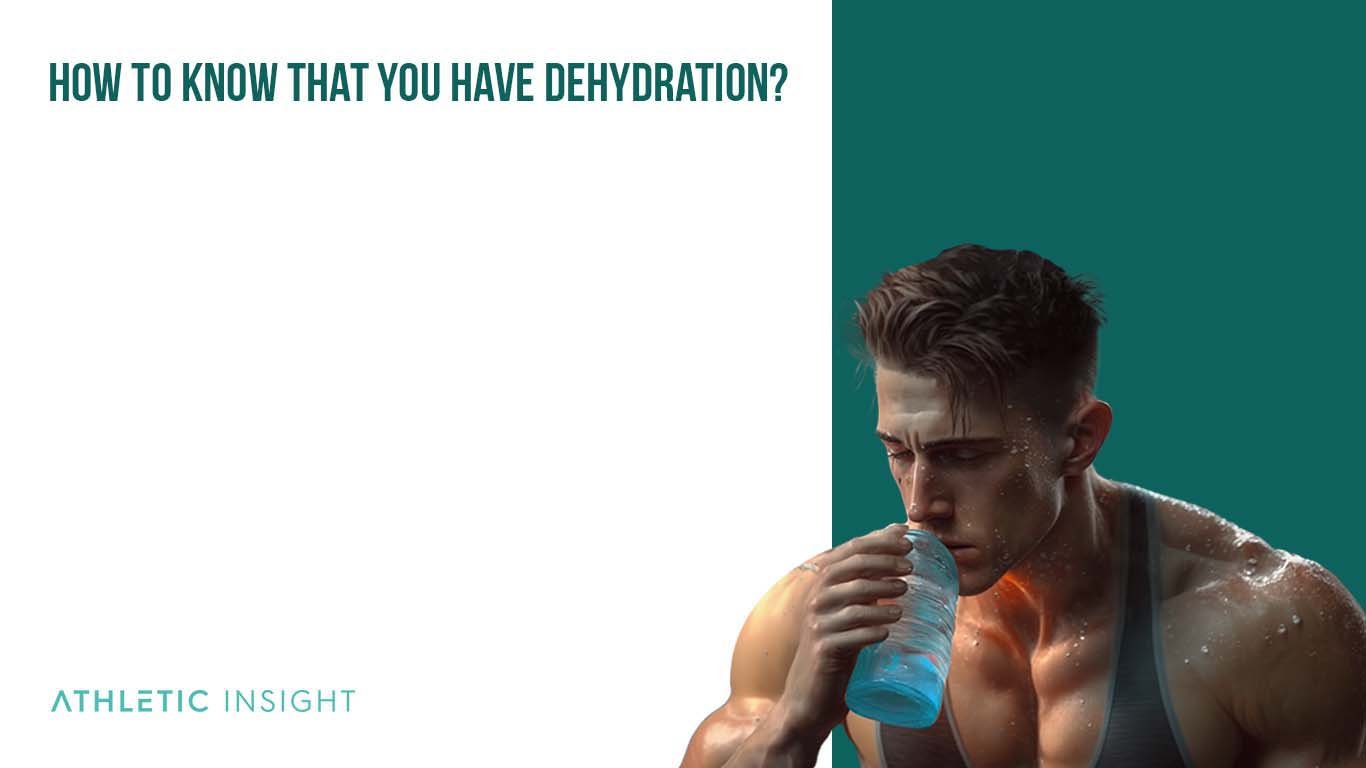Dehydration is when the body loses more fluids than it takes in. It can occur for various reasons, such as excessive sweating, vomiting, diarrhea, or simply not drinking enough fluids. When the body is dehydrated, it can’t function properly, and if left untreated, it can lead to serious health problems.
Dehydration symptoms vary depending on the severity of the condition, but common signs of dehydration include thirst, dry mouth, fatigue, headache, dizziness, dark urine, and muscle cramps.
In severe cases, symptoms of dehydration include confusion, rapid heartbeat, low blood pressure, and even coma. Treatment for dehydration usually involves replenishing the lost fluids and electrolytes through oral rehydration solutions or intravenous fluids, depending on the severity of the dehydration.
What Is Dehydration?
Dehydration is a condition that occurs when a person’s body loses more fluids than it takes in, resulting in an imbalance of essential electrolytes and negatively affecting the body’s ability to perform vital functions.

Water is crucial for various bodily functions, including temperature regulation, waste elimination, and carrying nutrients and oxygen to cells. Electrolytes, such as sodium, potassium, and calcium, help regulate nerve and muscle function, maintain the body’s acid-base balance, and ensure proper hydration.
When the body experiences dehydration, several consequences occur due to the lack of water and imbalance of electrolytes.
One consequence of dehydration is impaired cell function because water is responsible for transporting nutrients and oxygen to cells throughout the body. Cells rely on a delicate balance of water and electrolytes to function correctly. Dehydration can disrupt this balance, causing cells to malfunction and potentially leading to organ failure.
Another issue arising from dehydration is compromised temperature regulation because the condition can impair the body’s ability to cool itself, increasing the risk of heatstroke and other heat-related illnesses.
Water is also necessary for the kidneys to filter waste and toxins from the blood. Dehydration can lead to decreased kidney function and a higher risk of developing kidney stones or urinary tract infections.
Lastly, electrolytes are critical in transmitting electrical signals between nerves and muscles. Dehydration can impair this process, resulting in muscle weakness, cramps, and decreased coordination.
Why Does Our Body Experience Dehydration?
Dehydration happens when a person’s body loses more fluids than it takes in. For one, the body can become dehydrated if an individual doesn’t drink enough water, particularly during hot weather, when engaging in physical activity, or when ill.
Certain medical conditions, such as diabetes, kidney disease, or adrenal insufficiency, can cause increased fluid loss. Increased fluid loss due to excessive sweating, vomiting, diarrhea, or urination can also lead to the body losing more fluids than it can replace.
What Is the Cause of Dehydration?
Dehydration is caused by an imbalance between the amount of water and electrolytes a person takes in and what they lose. Most often it’s inadequate fluid, where the body does not receive enough water to meet its needs. Excessive sweating due to exercise, heat, or fever can also cause dehydration by expelling more fluids and electrolytes than are being consumed.

What Does Dehydration Feel Like?
Dehydration can cause a range of symptoms, varying in intensity and depending on individual factors. Thirst is often the first sign of dehydration, with the body signaling a need for more fluids. Dry mouth and throat, dark yellow urine, fatigue, dizziness, lightheadedness, headaches, and muscle cramps are also common symptoms of dehydration.
How Much Water Do You Have to Lose to Be Dehydrated?
A loss of just 1-2% of body weight due to fluid loss can lead to the onset of dehydration. The amount of water loss necessary for mild, moderate, and severe dehydration can vary depending on several factors, such as age, weight, activity level, and environmental conditions. However, in general, the following are the approximate ranges for each category of dehydration.
- Mild dehydration: Mild dehydration typically occurs when a person loses 1-2% of their body weight due to fluid loss.
- Moderate dehydration: Moderate dehydration occurs when a person loses 3-5% of their body weight due to fluid loss.
- Severe dehydration: Severe dehydration occurs when a person loses more than 5% of their body weight due to fluid loss.
How to Know that You Have Dehydration?
Thirst and dry mouth are early signs indicating the need for more fluids. Fatigue, dizziness, lightheadedness, headaches, and muscle cramps are also signs that you are dehydrated. Monitoring urine color can also help assess hydration status; a pale yellow indicates adequate hydration, while darker urine indicates dehydration.

What Are the Signs and Symptoms of Dehydration?
The signs and symptoms of dehydration can vary depending on the severity of fluid loss, but they generally include a combination of physical and cognitive indicators. Some common dehydration signs include thirst, dry mouth, dark urine, fatigue, dizziness, headaches, and muscle cramps.
- Thirst: Feeling thirsty is often the first sign of dehydration. When the body loses water, it triggers the thirst mechanism to encourage you to drink fluids and rehydrate.
- Dry mouth and throat: Dehydration can cause the mouth and throat to feel dry and sticky due to a lack of saliva production.
- Dark yellow urine: Lacking fluids can lead to urine appearing dark yellow because of the high concentration of waste products.
- Fatigue: Dehydration can cause fatigue and weakness due to decreased blood volume and oxygen supply to the muscles.
- Dizziness and lightheadedness: Decreased blood pressure can lead to feelings of dizziness or lightheadedness.
- Headache: Dehydration can cause headaches due to a decrease in blood volume and oxygen supply to the brain.
- Muscle cramps: Electrolyte imbalance related to dehydration can cause muscle cramps and spasms.
What Are the Signs and Symptoms of Dehydration in Women?
When considering dehydration symptoms and signs in women, it may be a surprise that they differ from men. Yes, the symptoms of dehydration in women are generally similar to those in men, but women experience additional symptoms due to their unique physiological makeup.
For example, dehydration can cause the skin to become dry and flaky, which can be more noticeable in women. Dehydration can also cause a drop in blood pressure, which can be more common in women, causing feelings of dizziness and lightheadedness. Dehydration can also cause menstrual irregularities in women, including flow and cycle length changes.
How to Treat Dehydration?
Dehydration treatment typically involves rehydrating the body and restoring proper fluid and electrolyte balance. Here are some steps to treat dehydration.
- The first step in treating dehydration is to drink fluids. Water is usually sufficient for mild dehydration, while sports drinks or electrolyte tablets are needed for more severe dehydration.
- Resting can help regulate body temperature and prevent further fluid loss.
- Consuming fluids that contain electrolytes can help restore electrolyte balance.
- Seek medical attention. Intravenous (IV) fluids can rehydrate the body and restore proper fluid and electrolyte balance.
Can You Treat Dehydration at Home?
Yes, simple measures can treat mild to moderate dehydration at home. The first step in treating dehydration is to drink fluids, such as water or sports drinks, to rehydrate the body. Electrolyte tablets or powders can be added to water or other liquids to help restore electrolyte balance.
Resting and avoiding physical activity can also help regulate body temperature and prevent further fluid loss.
How Often Does Dehydration Happen When Dieting?
Can dehydration happen during dieting? Yes, dehydration can happen when dieting. However, it is difficult to provide an exact definitive answer regarding the frequency of dehydration when dieting, as it depends on various factors such as the individual’s diet plan, fluid intake, and activity level.
One factor that can contribute to dehydration is insufficient fluid intake. Some individuals do not consume enough water while dieting due to a lack of awareness or an attempt to reduce their overall calorie intake.
Another factor to consider is the diuretic effects of certain diets. Some diet plans involve consuming foods or beverages with diuretic effects, such as caffeine or alcohol, which promote increased fluid loss through urination. Diets low in carbohydrates can also have a diuretic effect as the body depletes its glycogen stores.
Rapid weight loss diets can also contribute to dehydration. These diets aim for quick weight loss, which can involve the loss of water weight. In these cases, the body loses more fluids than it takes in, resulting in dehydration.
Increased physical activity is another aspect that can cause dehydration when dieting. Many people increase their exercise levels when dieting to burn more calories and achieve faster weight loss. This increased physical activity can lead to higher fluid loss through sweating.
How Is Dehydration Involved in Weight Loss?
Dehydration can play a role in weight loss, particularly through its effects on appetite and metabolism. When the body is dehydrated, it mistakenly interprets thirst signals as hunger, leading to increased appetite.
As a result, dieting becomes more difficult as individuals consume more calories, thinking that they are hungry, when in fact, they are experiencing thirst due to insufficient fluid intake. Proper hydration can help regulate appetite by ensuring that thirst signals are accurately recognized and addressed.
Dehydration can negatively impact metabolism, the process by which the body converts food into energy. The optimal metabolic function requires adequate hydration, as many of the body’s metabolic processes, including digestion and temperature regulation, rely on water.
When the body is dehydrated, it cannot perform these processes efficiently, leading to a slower metabolism. A slower metabolism, in turn, makes it more challenging to lose weight or maintain a healthy weight, as the body burns fewer calories at rest.
What Are the Signs of Dehydration in Weight Loss?
Dehydration signs in weight loss include physical symptoms such as dark yellow urine, dry skin, and dizziness or lightheadedness.
Fatigue, muscle cramps, and headaches indicate that the body lacks sufficient fluids. Though often thought of as the first sign of dehydration, thirst is not reliable. It can be mistaken for hunger or only occur once the body is significantly dehydrated.
Cognitive symptoms like difficulty concentrating, irritability, or confusion can also emerge when dehydration affects the brain’s functions.
Rapid weight loss without significant changes in diet or exercise can also be a sign of dehydration, as the body sheds water weight instead of losing fat.
What Are the Diet Types that Most Likely Cause Dehydration?
There are a few diet types that may cause dehydration such as the ketogenic diet, Atkins diet, and Intermittent Fasting.
- Ketogenic Diet
- Atkins Diet
- Intermittent Fasting
1. Ketogenic Diet
The ketogenic diet, or the keto diet, is a high-fat, low-carbohydrate diet that aims to induce a metabolic state called ketosis. In ketosis, the body burns fat for energy instead of carbohydrates.
The primary focus of the ketogenic diet is to consume high amounts of healthy fats, moderate protein, and very few carbohydrates, usually around 5-10% of the total daily calorie intake.
The ketogenic diet can cause dehydration due to the diuretic effect of reducing carbohydrate intake. When carbohydrate intake is low, the body depletes its glycogen stores, which bind to water molecules. As glycogen is used up, the body loses water weight, leading to increased fluid loss.
Carbohydrate restriction and the shift into ketosis can increase urination as the body tries to eliminate excess ketones. This increased fluid loss, combined with the reduced glycogen stores, can result in dehydration if fluid intake is improperly managed.
The ketogenic diet can be effective for weight loss and managing certain health conditions, such as epilepsy and type 2 diabetes.
2. Atkins Diet
The Atkins diet is a low-carbohydrate diet that controls insulin levels to promote weight loss and improve overall health. The Atkins diet is divided into four phases, gradually increasing the allowed daily carbohydrate intake.
The Atkins diet emphasizes high-quality protein sources, healthy fats, and non-starchy vegetables. Like the ketogenic diet, the Atkins diet can cause dehydration due to the diuretic effect of reducing carbohydrate intake and depleting glycogen stores.
The initial stages of the Atkins diet can lead to increased urination as the body adjusts to a lower carbohydrate intake. This increased fluid loss, combined with the reduction in glycogen stores, can result in dehydration if fluid intake is not managed correctly.
The Atkins diet can be effective for weight loss and improving specific health markers. However, individuals should consult a healthcare professional before starting the Atkins diet and ensure proper hydration.
3. Intermittent Fasting
Intermittent fasting is an eating pattern that cycles between periods of fasting and eating. An intermittent fasting diet does not specify which foods to eat but instead focuses on when to eat them.
There are several approaches to intermittent fasting, such as the 16/8 method, where one fasts for 16 hours and eats during an 8-hour window, or the 5:2 method, where one consumes a restricted calorie intake for two days a week and eats normally on the other five days.
Intermittent fasting can cause dehydration if a person does not consume enough fluids during their eating window or engages in prolonged fasting periods without adequate water intake.
Dehydration can occur when individuals don’t prioritize fluid intake during their eating windows or assume drinking water is only necessary when they feel thirsty.
Intermittent fasting can be an effective weight loss tool and provides various health benefits, such as improved insulin sensitivity and reduced inflammation. However, it is essential to maintain proper hydration and ensure adequate nutrient intake during the eating window.
Can Exercising Cause Dehydration?
Yes, exercising can cause dehydration, especially if the individual does not take adequate measures to replace the fluids lost during physical activity. The body’s temperature increases during exercise, causing it to sweat in order to cool down.
Sweat is composed mainly of water and electrolytes, which are essential for regulating the body’s fluids and electrolyte balance. If the fluids lost during sweating are not replenished by drinking fluids, the body can become dehydrated.
The extent of fluid loss during exercise can depend on several factors, such as the intensity and duration of the exercise, the individual’s body weight, and the environmental conditions.
How Often Does Dehydration Happen When Exercising?
Dehydration can certainly occur during exercise, particularly when fluid intake is not sufficient or when engaging in prolonged or intense physical activity.
High-intensity exercise, such as high-intensity interval training or endurance sports, can lead to dehydration due to the higher rate of fluid loss through sweating. If proper hydration is not maintained during these activities, the risk of dehydration increases.
Environmental conditions, such as exercising in hot or humid environments, can further exacerbate fluid loss as the body’s sweating rate increases. If fluid intake is not adjusted to account for these environmental factors, dehydration is more likely to occur.
Prolonged exercise, including activities like marathons or extended hiking trips, increases the risk of dehydration due to the extended period of fluid loss through sweating.
How Do You Know if You Are Dehydrated While Exercising?
The following are some common signs and symptoms of dehydration during exercise: feeling thirsty, dry mouth, dark yellow urine, fatigue, dizziness, headache, and muscle cramps.
How to Avoid Dehydration while Exercising?
To avoid dehydration while exercising, drink 17 to 20 ounces of water 2 to 3 hours before exercising, 8 ounces of water during warm-up, and 7 to 10 ounces of water every 10 to 20 minutes during exercise. Drink 8 more ounces of water no more than 30 minutes after exercise.
What Are the Health Risks of Dehydration?
Side effects of dehydration can range from mild to severe depending on the degree of fluid loss. Some of these risks include impaired cognitive function, decreased physical performance, heat exhaustion, heatstrokes, kidney stones, UTIs, constipation, and muscle cramps.
- Impaired cognitive function: Even mild dehydration can affect cognitive function and lead to headaches, fatigue, and decreased mental clarity. Because the brain relies on adequate hydration to maintain proper cognitive function, dehydration can impair short-term memory, attention, and decision-making abilities. Prolonged or severe dehydration can also lead to confusion, disorientation, and delirium.
- Decreased physical performance: Dehydration can cause fatigue, weakness, and decreased endurance, which can negatively impact physical performance. Even a small amount of fluid loss can lead to decreased physical performance, such as slower reaction times, reduced endurance, and impaired coordination.
- Heat exhaustion: Dehydration can increase the risk of heat exhaustion, characterized by symptoms such as heavy sweating, dizziness, nausea, and muscle cramps. It can progress to a more severe condition, such as heat stroke if left untreated.
- Heatstroke: Severe dehydration can lead to heatstroke, a potentially life-threatening condition characterized by high body temperature, confusion, seizures, and loss of consciousness. Heatstroke occurs when the body’s temperature regulation system fails, and the body temperature rises rapidly.
- Kidney stones: Chronic dehydration can increase the risk of kidney stones or mineral deposits in the kidneys. Kidney stones can cause severe pain and kidney damage, requiring medical treatment, such as medication or surgery, to remove.
- Urinary tract infections: Dehydration can also increase the risk of urinary tract infections (UTIs), bacterial infections affecting the bladder, ureters, or kidneys. Symptoms of UTIs include pain, burning, and frequent urination, and they can require medical treatment with antibiotics.
- Constipation: The body absorbs more water from the colon to compensate for the lack of fluids, causing constipation. This condition causes hard, dry stools that are difficult to pass.
- Muscle cramps: Dehydration can lead to an electrolyte imbalance, causing muscle cramps and spasms, especially during exercise or physical activity. Muscle cramps can be painful and limit mobility, making it difficult to perform physical activities.
Are there any benefits of Dehydration?
No, there are no known benefits of dehydration. Some people mistakenly believe dehydration can benefit weight loss, but this is not true. Any weight loss resulting from dehydration is temporary and can be regained once fluids are replenished.
Also, dehydration can impair physical and cognitive performance, making it difficult to perform daily tasks or exercise effectively.
Can You Drink a Lot of Water and Still Be Dehydrated?
Yes, drinking a lot of water and still being dehydrated is possible because dehydration is not just a matter of drinking enough water but also about maintaining the proper balance of electrolytes in the body.
Drinking too much water without replenishing electrolytes can lead to an imbalance, known as hyponatremia, which can cause symptoms such as nausea, headache, confusion, and seizures.
Certain medical conditions, such as diabetes or kidney disease, can also affect the body’s ability to regulate fluids and electrolytes, leading to dehydration even if adequate fluids are consumed.



